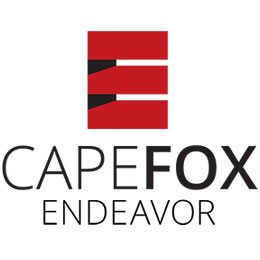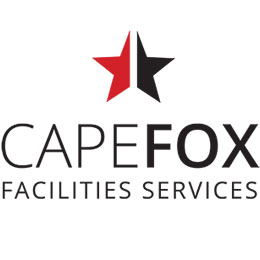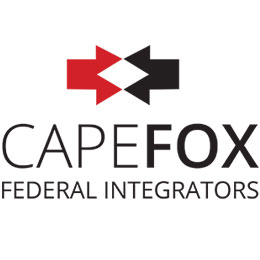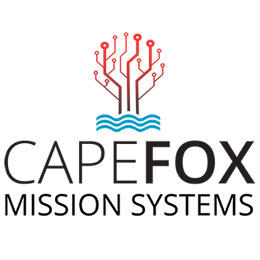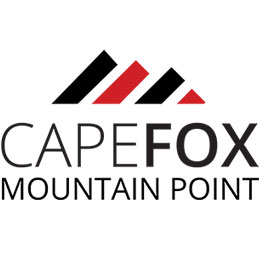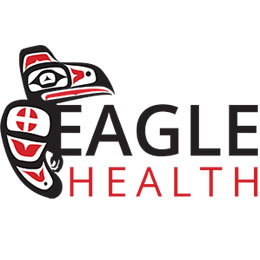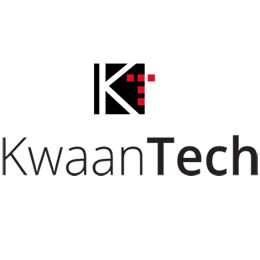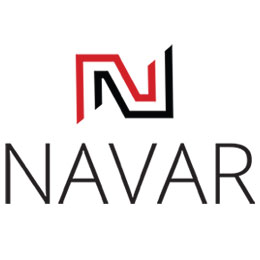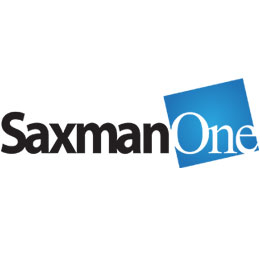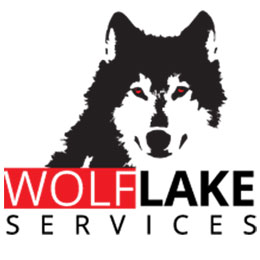This paper explores the emerging trends in employee wellness for 2024, highlighting the importance of holistic health approaches in the modern workplace. As businesses continue to navigate the evolving landscape of employee needs and expectations, this document provides insights into innovative strategies that prioritize employees’ physical, mental, and emotional well-being.
Introduction
In contemporary employment, the paradigm of employee wellness has undergone a significant transformation. Traditionally circumscribed to health benefits and physical fitness amenities, such as gym memberships, the scope of employee wellness has dramatically broadened in recent years. This expansion is a direct response to the global events of the past decade, including the profound impacts of the COVID-19 pandemic, rapid technological advancements, and evolving societal attitudes toward work-life balance and mental health.
The global health crisis served as a catalyst for a seismic shift in how businesses approach the health and well-being of their employees. The unprecedented challenges brought about by the pandemic – from the stress of remote work and social isolation to the anxiety of job security and health concerns – have foregrounded the necessity of a more holistic approach. This approach transcends the traditional focus on physical health, delving deeper into mental and emotional wellness. It has become abundantly clear that the well-being of employees is inextricably linked to their productivity, engagement, and overall satisfaction in the workplace.
Furthermore, the rapid evolution of technology and the increasing digitization of the workplace have introduced new dynamics in the work environment. Issues such as digital fatigue, the erosion of work-life boundaries, and the impersonal nature of virtual communication have further emphasized the need for comprehensive wellness strategies that address these modern challenges.
This paper delves into the emerging trends in employee wellness as we head into 2024. These trends reflect the ongoing evolution in our understanding of what it means to be well in the modern work environment. The paper aims to offer valuable insights and actionable guidance for businesses and HR leaders looking to enhance their health and wellness programs. It underscores the importance of adopting a multifaceted approach to employee wellness that caters to physical health and places a significant emphasis on mental and emotional well-being, acknowledging the complex and interconnected nature of these aspects in achieving overall employee health.
As businesses navigate this new terrain, adopting innovative wellness strategies becomes not just an option but a critical component in attracting and retaining top talent, fostering a positive organizational culture, and maintaining a competitive edge in an ever-changing global marketplace. The following sections will explore these trends in detail, providing a comprehensive overview of the holistic wellness landscape in 2024 and beyond.
Trend 1: Mental Health and Emotional Well-Being
The burgeoning recognition of the integral role mental health plays in overall employee wellness has led to an unprecedented focus on this area in corporate health strategies. As we venture into 2024, two key aspects are at the forefront of this trend: integrating mental health services into wellness programs and emphasizing nurturing a healthy work-life balance.
- Integrated Mental Health Services: The progressive approach towards employee wellness now encompasses an extensive array of mental health services as integral components of corporate health programs. This shift acknowledges that mental health is as critical as physical health in determining an employee’s productivity, engagement, and overall well-being. Companies are progressively embedding services such as one-on-one counseling, which offers employees a confidential space to discuss their challenges and receive professional support. This is often coupled with stress management workshops that equip employees with practical tools and techniques to manage daily stressors effectively, thereby fostering a more resilient workforce.
Another significant element in this trend is the incorporation of mindfulness and meditation training into the workplace. These practices are gaining traction due to their proven benefits in enhancing focus, reducing anxiety, and improving emotional regulation. By offering these resources, businesses are addressing immediate mental health concerns and investing in their employees’ long-term emotional well-being.
- Focus on Work-Life Balance: The concept of work-life balance has transcended the realm of mere rhetoric to become a pivotal factor in employment decisions and employee satisfaction. Recognizing this, organizations are reevaluating and restructuring their policies to create an environment that better balances professional responsibilities and personal life. Flexible working hours have become increasingly common, allowing employees to tailor their work schedules around their personal commitments and preferences. This flexibility is seen as crucial in reducing burnout and increasing job satisfaction.
Alongside flexible hours, the option for remote work continues to be a significant trend. Initially propelled by the pandemic’s necessity, many have embraced remote work as a permanent feature of the modern workplace. It offers employees the advantage of saving time on commuting, greater autonomy, and the flexibility to create a work environment that suits their individual needs. However, it’s also essential for businesses to ensure that remote work policies do not inadvertently lead to longer working hours or a blurring of boundaries between work and personal time.
In summary, the trend of prioritizing mental health and emotional well-being within the workplace is gaining momentum. By integrating comprehensive mental health services and promoting a healthy work-life balance, companies are not only enhancing the well-being of their employees but are also setting a new standard for what it means to be a forward-thinking, employee-centered organization in 2024.
Trend 2: Physical Wellness
As we move into 2024, the focus on physical wellness within the workplace continues to evolve, becoming more inclusive and innovative. This evolution reflects a deeper understanding of the diverse needs and preferences of the workforce. Two prominent aspects of this trend are the introduction of innovative fitness programs and the emphasis on ergonomic work environments.
- Innovative Fitness Programs: The contemporary workplace recognizes that one-size-fits-all fitness programs are no longer sufficient. Employees come with diverse physical abilities, interests, and health goals. In response, companies are embracing a variety of innovative fitness offerings. Virtual fitness classes have become a staple, especially as they offer the flexibility to participate from any location, be it at home or in the office. These classes range from high-intensity interval training (HIIT) to yoga and mindfulness-based stretching, catering to a broad spectrum of fitness levels and preferences.
Additionally, on-site fitness facilities are being reimagined to be more inclusive and accessible. These facilities often include equipment and spaces designed for a wide range of activities, from traditional weight training and cardio to more gentle forms of exercise like pilates and tai chi. The key is inclusivity, ensuring that everyone, regardless of their fitness level or physical ability, feels welcome and catered to in these spaces. Furthermore, some companies are incorporating gamified fitness challenges and group classes to foster a sense of community and motivation among employees.
- Ergonomic Work Environments: The second significant aspect of this trend is the investment in ergonomic work environments. As we spend a considerable portion of our day working, the importance of a workspace that supports physical health cannot be overstated. Businesses are increasingly aware of this and are investing in ergonomic furniture and equipment. This includes adjustable chairs and desks, monitor stands, and ergonomic keyboards and mice, all designed to reduce strain and prevent injuries. The goal is to create a workspace that promotes good posture, reduces the risk of repetitive strain injuries, and improves overall comfort while working.
Beyond just providing ergonomic furniture, some companies are going a step further by offering regular ergonomic assessments and training. These initiatives educate employees on how to set up their workspace optimally and adopt healthy work habits, such as taking regular breaks and practicing exercises designed to offset the strains of desk work.
In conclusion, the trend toward physical wellness in 2024 is characterized by a more personalized, inclusive approach to fitness and a heightened focus on creating ergonomic work environments. These initiatives not only contribute to the immediate physical health of employees but also have long-term benefits for their overall well-being and productivity. By investing in these areas, companies are demonstrating a commitment to the holistic health of their employees, recognizing that a healthy workforce is a key driver of a successful business.
Top of Form
Trend 3: Nutritional Health
As we continue to navigate the health trends of 2024, nutritional health emerges as a pivotal aspect of employee wellness programs. Two key areas underscore this trend: the implementation of healthy eating initiatives and the focus on catering to diverse dietary needs and preferences.
- Healthy Eating Initiatives: The growing awareness of the impact of diet on overall health and well-being has led many workplaces to reevaluate and enhance their food offerings. This shift is evident in the transformation of cafeterias and vending machines, where a greater emphasis is being placed on providing various healthier food options. These include fresh fruits and vegetables, whole grains, lean proteins, and low-sugar snacks. This move is not just about offering healthy options but also about making them appealing and accessible to encourage employees to make healthier food choices.
In addition to revamping food offerings, some workplaces are taking a more active role in educating their employees about nutrition. This includes providing nutrition counseling services where employees can receive personalized dietary advice tailored to their specific health needs and goals. Cooking workshops and demonstrations are also gaining popularity, equipping employees with the skills and knowledge to prepare healthy meals. These workshops often focus on quick, easy-to-prepare recipes that can facilitate healthier eating habits, even for those with busy lifestyles.
- Focus on Dietary Diversity: Recognizing the diverse workforce that companies now host, there is an increasing effort to cater to a wide array of dietary needs and preferences. This inclusivity in food offerings is crucial in ensuring that all employees, regardless of their dietary restrictions or choices, have access to suitable and nutritious food options. Workplaces are expanding their menu to include a more comprehensive range of options, such as plant-based and vegan dishes catering to those following vegetarian and vegan diets.
Additionally, there is heightened attention to offering allergen-free choices and acknowledging the needs of employees with food allergies and intolerances. This approach involves providing alternatives and ensuring cross-contamination is minimized, making it safer for those with severe allergies. Gluten-free, dairy-free, and nut-free options are increasingly common, and labeling food items for potential allergens is being adopted to aid in making informed food choices.
The evolution of nutritional health trends within the workplace in 2024 reflects a broader commitment to supporting employees’ overall health and well-being. By providing healthier food options, focusing on dietary diversity, and educating employees about nutrition, companies are creating an environment that promotes and supports healthy eating habits. This benefits employees’ physical health and contributes to their mental and emotional well-being, ultimately leading to a more productive and engaged workforce.
Implementation Strategies
The successful implementation of these wellness trends hinges on strategic planning and execution. To ensure these initiatives are effectively integrated into the workplace and yield the desired outcomes, businesses should consider the following expanded strategies:
- Conduct Employee Surveys: Understanding the specific needs, preferences, and expectations of employees is crucial for tailoring wellness programs that are both relevant and engaging. Conducting regular surveys is an effective way to gather this information. These surveys should be comprehensive, covering various aspects of wellness, including physical, mental, and social well-being. They should also be designed to capture feedback on existing wellness offerings and solicit suggestions for new initiatives. To encourage honest and constructive feedback, ‘ ‘it’s important to ensure anonymity and communicate the purpose of the survey clearly to the employees. Analyzing the survey results will provide valuable insights into the areas where the wellness program can be improved or expanded to better meet the needs of the workforce.
- Involve Leadership: The involvement of top-level management and leadership is essential in driving the success of wellness programs. Leadership support can manifest in various forms, from advocating for the importance of wellness within the organization to participating in wellness initiatives themselves. When leaders actively engage in and endorse these programs, it sets a positive example and can significantly enhance employee participation and engagement. Additionally, securing leadership buy-in is often crucial for allocating the necessary resources and budget to implement and sustain these wellness initiatives.
- Offer Personalization: The one-size-fits-all approach is no longer viable in the context of modern wellness programs. With the diverse nature of the workforce, personalization becomes critical. This involves offering a range of options and programs that cater to different interests, lifestyles, and health goals. Personalization can also mean providing employees with the tools and resources to create their own personalized wellness plans. This could include access to online platforms where they can set personal health goals, track their progress, and receive tailored recommendations. Employees are more likely to embrace personalized wellness initiatives, leading to higher participation rates and more positive outcomes.
- Measure Impact: Finally, it is essential to assess the effectiveness of wellness programs regularly. This can be achieved through continuous feedback mechanisms and monitoring key performance indicators (KPIs). KPIs might include participation rates in wellness activities, changes in health-related outcomes (e.g., reduced absenteeism, lower health insurance claims), and employee satisfaction scores. Regular assessment helps identify the strengths and weaknesses of the wellness program and provides a basis for continuous improvement. Feedback can be gathered through follow-up surveys, focus groups, and informal discussions. Notably, the measurement of impact should also include an assessment of the return on investment (ROI) of wellness initiatives to understand their economic viability and sustainability.
In summary, the successful implementation of wellness trends requires a strategic and holistic approach. By understanding employee needs, involving leadership, personalizing offerings, and measuring impact, businesses can develop and maintain wellness programs that promote their employees’ health and well-being and contribute to a more dynamic, engaged, and productive workplace.
Conclusion
As we approach 2024, it is evident that the landscape of employee wellness is undergoing a significant transformation. The emerging trends in wellness reflect a paradigm shift towards a more holistic and inclusive approach, underscoring the importance of addressing the multifaceted aspects of employee health. This evolution in workplace wellness strategies is not merely a trend but a fundamental change in how businesses perceive and value the well-being of their employees.
The integration of mental health services, the emphasis on physical wellness through innovative programs and ergonomic environments, the focus on nutritional health, the utilization of technology for health tracking and personalized wellness plans, and the incorporation of social and environmental responsibility all illustrate a comprehensive approach to employee wellness. By adopting these trends, businesses are recognizing that the health and well-being of their employees are integral to the overall success and sustainability of the organization.
The benefits of embracing these wellness trends extend far beyond the immediate health improvements for individual employees. A holistic wellness program can lead to increased employee engagement, higher job satisfaction, and improved productivity. When employees feel that their well-being is valued and supported, it fosters a positive workplace culture characterized by motivation, collaboration, and a shared sense of purpose. This positive culture, in turn, can enhance the ‘ ‘company’s reputation as an employer of choice, aiding in talent attraction and retention.
Furthermore, by prioritizing employee wellness, businesses are also making a strategic investment in their future. Healthy, happy employees are more resilient, adaptable, and innovative. They are better equipped to handle the challenges of the modern workplace and contribute to the ‘ ‘company’s growth and success. Additionally, the focus on environmental and social wellness aligns businesses with broader societal values and priorities, positioning them as responsible and forward-thinking entities in the global market.
In conclusion, the wellness trends for 2024 offer a roadmap for businesses to enhance not only the health and well-being of their employees but also to cultivate a workplace environment that is productive, engaged, and positively charged. The implementation of these trends requires commitment, strategic planning, and ongoing assessment, but the benefits are clear and far-reaching. As businesses adapt to these trends, they are setting new standards in corporate responsibility and employee care, paving the way for a healthier, more sustainable future in the workplace.










